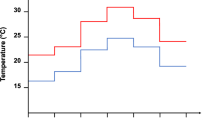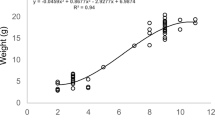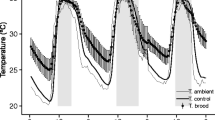Abstract.
Cockroaches parasitized by the temperature-sensitive acanthocephalan Moniliformis moniliformis exhibit a variety of behavioral alterations, so we asked if parasitized cockroaches defended themselves against the parasite with altered thermal choices. We tested the null hypothesis that cockroaches infected with M. moniliformis do not alter temperature choice in two ways: by direct observation and, indirectly, by observation of parasite development after a prolonged developmental period. When we compared acanthocephalan development in cockroaches that were allowed to use thermal gradients to acanthocephalan development in cockroaches held at constant temperatures, we found that in two cockroach species (Supella longipalpa and Blatta orientalis), acanthocephalan development was greatly retarded, a result that is consistent with the cockroaches spending time in cold temperatures. Parasitized animals exhibit behavioral alterations that can have profound effects on parasite transmission and host well-being; neither the beneficiaries of those alterations nor the alterations themselves are easily predictable.
Similar content being viewed by others
Author information
Authors and Affiliations
Corresponding author
Additional information
Electronic Publication
Rights and permissions
About this article
Cite this article
Moore, J., Freehling, M. Cockroach hosts in thermal gradients suppress parasite development. Oecologia 133, 261–266 (2002). https://doi.org/10.1007/s00442-002-1030-5
Received:
Accepted:
Published:
Issue Date:
DOI: https://doi.org/10.1007/s00442-002-1030-5




